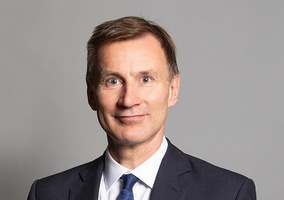The UK’s largest 100 charities by income are facing significant increases in energy bills, with one reporting an increase of £1m a year, according to new research.
Leaders of charities including Cancer Research UK, Jewish Care, and Methodist Homes told Charity Finance magazine they faced soaring energy costs in 2021-22 and expect further increases this year due to sustained levels of inflation and reduced government support measures.
Speaking to the title for its Charity Chief Executives Survey 2023, which will be published tomorrow, they said the cost-of-living crisis had impacted their fundraising income, with supporters unable to give as much money.
Soaring energy bills
This year, the biennial survey asked CEOs whether they had any concerns around rising costs and energy bills in light of the current inflationary environment.
Daniel Carmel-Brown, chief executive of Jewish Care, said his organisation’s energy bills have risen by £1m over the past year and are likely to increase further “in such an uncertain climate”.
“Our entire cost base is inflation sensitive and only one-third of our income base can be adjusted at similar levels,” he said.
“We are working through plans to find a sustainable way through what we predict will be a challenging few years.”
He added: “We will continue to raise funds to support our services and our community whilst paying close attention to any changes and fluctuations in wholesale prices and how this may affect us.”
Taking measures to reduce costs
Michelle Mitchell, chief executive of Cancer Research UK, said issues including “record inflation, rising energy bills and a predicted economic downturn” will have a negative impact on the charity’s income and expenditure.
“As prices have risen sharply […], we estimate our energy spend doubled [between 2021 and 2022]. Our energy purchasing strategy, which allows us to spread purchases over three years, helps us manage the impact of a rising market as much as possible. We’ve also taken measures to reduce our energy consumption, including implementing the roll out of LED lighting to all CRUK shops and superstores.”
Methodist Homes, led by Sam Monaghan, has seen its gas prices increase by 50% and electricity by 116% in its latest renewal of energy contracts.
Monaghan argued that such rising costs impact MHA’s ability to generate a surplus through its 89 care homes and retirement living services to reinvest in its charitable services such as music therapy and community-based provision for older people living independently in their homes to combat loneliness and isolation.
“Energy bills and rising costs of living are having an impact on not just MHA but also the older people we care for and support,” he said.
Local charities having to make ‘difficult decisions’
Clare Moriarty, chief executive of Citizens Advice, said that the cost-of-living crisis presents “huge pressures” for the network of over 250 local charities that are trying to meet increasing demand with resources that are tighter than ever.
“Rising running costs continue to be a huge challenge when funding has often remained stagnant. We know our network of local charities are having to make difficult decisions every day to stay afloat and continue providing their vital support to people who need it.”
Meanwhile, Dogs Trust reported that the cost-of-living crisis has impacted its fundraising income.
Chief executive Owen Sharp said: “The recruitment of new supporters is beginning to slow down and we’re seeing a slight reduction in the amount our existing donors are able to give to us.”
He continued: “The cost of running our fundraising has been impacted by the rise in printing costs – our Christmas campaign is costing us 30% more than this time last year.”
Related articles










